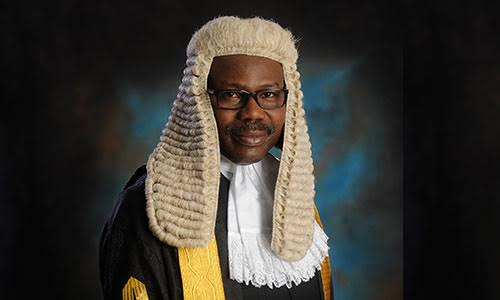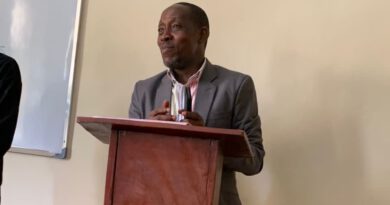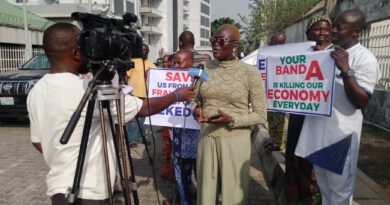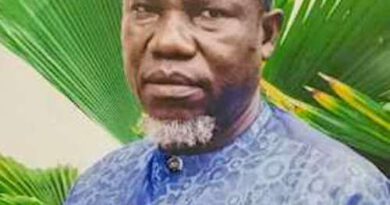Cost of Democracy vs Dividends of Democracy- Dr.Muiz Banire
On a number of occasions in the past, I have addressed the issue of astronomical and debilitating cost of governance in Nigeria. For instance, in the edition of this column on September 22, 2022 “Cost of governance, Nigeria’s albatross https://www.sunnewsonline.com/cost-of-governance-nigerias-albatross” and in July, 2023 “Mr. President: X-Raying Oronsaye report for implementation https://sunnewsonline.com/mr-president-x-raying-oronsaye-report-for-implementation”, I dedicated a substantial amount of ink to this perpetual problem which has assumed a dimension beyond the intractable.
It is clear that without a dedicated and single-purposed approach, we cannot achieve a correction of the imbalance that cost of governance has imposed on us. A perennial question is whether this type of democracy that we have embraced has any solution to our problems which range from social to economic and political. The truth is that the outcome of the democratic experiment, particularly in terms of the election cycles, hardly produces substantial number of credible leaders. The consequential effect of this being misgovernance, thus signaling the reality that we are spending such huge amount to acquire bad governance. We seem not to be deriving any joy from our own model of democracy. Coupled with the above is that the template of governance that we have adopted which is presidential system of government seems to have created un-envisaged challenges on its own. Under the system we have a president who is the head of the executive presiding over an array of offices which must be servicedat all times once we are preparing a budget. In addition to this is the bicameral legislative system by which we must have a horde of 109 Senators and 360 members in the House of Representatives.
Every four years there must be an election for change of baton which gulps billions upon billions of Naira. Once new legislators come in, we must provide basic allowances for housing,transportation, all manner of emoluments and perquisites for them to make them (functional) comfortable. Considering that we have made legislative functions a permanent job rather than being part-time, we must refurbish their offices to meet the standard of a new comeror allowances in the alternative. The new cabinet members equally attract their own entitlements in the like manner. Coupled with the above are unaccounted payments that we read on newspapers and social media that are not only mind-boggling but quite devastating to conscience.
Again, that is still not so much of a headache to me. My worry is basically the snail speed and the acrobatic display of ignorance in the process of concurring on policies and programs between the parliament and the executive. So many lofty and laudable initiatives have been frustrated in such battle of wits. The least funded is the judiciary but the case of that one has become like a problem most impossible for the system to solve. We are a people that only pay lip-service to constitutionalism, rule of law, separation of powers, independence of the judiciary and the need for justice. In the midst of our myriads of defaults we want the country to progress knowing quite well that no nation makes progress with such baggage of backwardness that we have imposed on ourselves. Despite many years of agitation on the judiciary, it is of recent that the new government in the nation has announced the need for the Revenue Mobilisation and Allocation Commission (RMAFC)to improve on the salaries and emoluments of judges.
The implication is that if there is allegation of excessive cost of governance, the judiciary is not liable for it as we all agree that it is even under-funded which is compromising its integrity and capacity to deliver on its constitutional mandate. Where this is the case, cost of governance in this nation that is crushing life out of the common man can only be located at the doorsteps of the executive and the legislature. The amount we waste on recurrent expenditure every four years across the nation and at all levels of governance can repair the economy as this is a major loophole through which we encourage waste in government. In addition to the above is the fact that amounts earmarked for payment of huge number of aides and personal assistants can feed some communities into obesity.
We are a nation that encourages waste and wants to have abundance at the same time. How that is possible is beyond imagination. For the umpteenth times, I say we need to revisit the Oronsanye report for immediate implementation. There must be immediate reduction in the number of agencies and parastatals we are nourishing. This is not limited to the central government but all levels of government. Fellow Nigerians, of recent, and whom I do not agree with, is the vituperations of the former President, Chief Olusegun Obasanjo, on the need to review the usefulness of democracy as our means of government. I have in two different editions of my interventions in this column over a year ago interrogated the same question with a view to replacement ( See my column in the Daily Sun of 14thJanuary 2021 “Rethinking the absolute franchise system in Nigeria https://www.sunnewsonline.com/rethinking-the-absolute-franchise-system-in-nigeria” and 21stJanuary 2021 “Rethinking the absolute franchise system in Nigeria (Part 2) https://www.sunnewsonline.com/rethinking-the-absolute-franchise-system-in-nigeria-2/” ). Some other people have posited that democracy is not a system of government that is consistent with African ethos and that it might be better for us to revert to the ancient system we inherited from our fore-fathers which is monarchy.
This argument is an exigency that is encouraged by the failure of the modern system of government to protect the interest of the majority under the dominance of the minority. It is agreed that democracy has substantially failed in Africa. There is no doubt about that. In many cases, if not in most cases, our elections are products of thuggery, violence, naked terrorism and brigandage. Elections in this part of the world, Nigeria in particular, as in many cases so brazenly rigged which has spurred many legislative reforms. We have come across a situation where with every new Electoral Act in Nigeria, the legislature is making efforts to make the laws more accountable. In antithesis to this is the spirit of an average Nigerian politician that sees elections as a do-or-die affair. He would rather kill, maim, violate women than lose elections. He would rather be the one to be declared winner than be the petitioner before an election petition tribunal.
This situation compelled the government of Alhaji Umaru Musa Yar’Adua to set up electoral reforms committee the reports of which seem to be finding its way into legislative enactments gradually in recent times with the amendments of the Electoral Act. During elections, hundreds of billions of Naira are wasted to conduct elections which politicians often do not allow to be free and fair. This attitude has rubbished the efforts the Independent National Electoral Commission (INEC) whose responsibility it is to conduct free and fair elections. When this occurs, nobody blames the politicians but rather INEC. Unfortunately, the nation has lost huge amounts of resources in the course of holding and conduction elections. Again, we must also acknowledge the stupendous amounts spent by politicians themselves, all ultimately amounting to nothing as no value is ultimately added to the system by majority of the elected officials. Our politicians have made the courts and election petitions the natural consequences of every election as they are perceived to have either rigged the election or the losing opponent sees the court as the place to recover a mandate that was never lost; the intention being to use the tribunal or court as an engine of fraud to manipulate the electoral process. In the ensuing process, they have infiltrated the hallowed chambers of the judiciary with sleazy funds. They have dangled the irresistible wads of the filthy lucre before the oracles of justice.
The suffocating aroma of money have set some judges astray from their sacred duty of dispensing justice. We now have conflicting judgments and somersaulting rulings.
The same judgment will rule in favour of the respondent andconclude with victory for the Petitioner in the same caseas in a case I was involved in recently. The chambers of justice have been set on financial fire and the inferno has become uncontrollable. This is increasing astronomically the cost of governance as these illicit investors of iniquity will enter executive or legislative offices with the sole aim of recouping their satanic investments. Recall again the humongous amount of money spent in the operation of the Tribunals and the Appellate courts singularly for the purpose of determining election petitions. Of what value is this to the growth of the country? Honestly I cannot see it. Sincerely, our democratic experiments have not justified the huge waste of resources we embark upon every four years as what we have often succeeded in birthing is poor and mis-governance with brigands and miscreants being put in positions of power. At the end of the day, the masses are the worse for it. What it costs us to conduct elections every four years can make electricity available to every home in Nigeria if the economy of energy provision is properly accounted for in this country. It is sufficient to run free and qualitative education assuming we have a system that runs on another model other than the purported democratic efforts we are making. We have examples of countries that run monarchy and are thriving well as they do not have any reason to embark on avoidable wastage like ours every four years.
If we must continue with this system, then we need to make it work. We need to make it justifiable. Just as President Yar’adua did, our President must reckon with reform in this area, particularly in terms of freeing the judiciary from the burden of election petitions and fast-tracking the resolution of disputes. All the efforts at attracting foreign investments into the country cannot materialize without an effective and efficient judiciary capable of enthroning and enforcing the rule of law. Once our economy is revamped, there will be greater confidence in the system. His Excellency must embark on moral regeneration of our electoral system and will have to cut down on the cost of governance. This must be addressed as a matter of urgency. His present assignment is different from all the ones that he has done in the past. This is a make or mar one. If some people had not been elected President in this country, they would probably have gone to their graves with epitaphs loftier than the one written on the grave of Machiavelli by the Italians 400 years after his death. We would have mistaken such Nigerians to be best Presidents we never had just as said of Chief Obafemi Awolowo, SAN, GCFR but whose qualities and achievement actually justified such epitaph about him. For those other ones, their past achievements did not justify such a descriptive praise but our desperation at having what we felt they could have done if given the opportunity would have made us to be over-generous to them in fulsome praises. In this class fall some of our recent past leaders
Their regimes proved to be disasters during which the nation was further set on the path of degeneration and economic meltdown. No amount of deodorization can be done to make them look saintly anymore. We have tried them and we have seen their limitations. God made them presidents only to demystify them. Asiwaju Bola Tinubu must not be in that class. Our prayers for him, and not even specifically for him, but for ourselves, is that he must succeed in rejuvenating the economy of this nation and reforming the democratic process if we still insist on it. The government must succeed in bringing back the nation to the path of progress and irreversible development. That is the only way we can enjoy this country. Thus, the prayer is for ourselves. Wishing him to succeed is wishing ourselves progress and development, peace and prosperity. That is the only way many Nigerians will not die in and of misery. We must reduce the cost of governance, block the holes created by previous governments by which our resources are funneled to enrich private pockets and estates. We must revitalize our manufactory so that we can effectively generate foreign exchange that can strengthen the Naira and make investments in the nation worth the while of foreign investors. That is the only way our electoral activities of every four years can make any meaning as the present situation is a testimony that cost of governance outweighs dividends of democracy. The model we have adopted has been more of a liability to the common man as his concern is how does he fare no matter the name you call the system. The economic substance over the political form is the ultimate.




